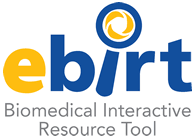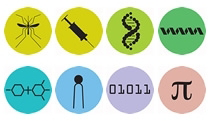Research and Woodruff Health Sciences IT


In his sixth year in the role of Deputy Chief Information Officer, Marc Overcash leads the Research and Woodruff Health Sciences IT Division in the advancement of research through the application of information technology. Marc also serves as the Assistant Dean of IT in the School of Medicine, Adjunct Faculty in Public Health Informatics in the Rollins School of Public Health, and co-director of the Biomedical Informatics Program for the Atlanta Clinical and Translational Science Institute.
For the Research and Woodruff Health Sciences IT (R-WIT) Division, FY 13 has been a year of building. Not only has the Division continued to grow in personnel, responsibility, and projects, we have been building the foundations for a series of strategic initiatives to support the multiple missions of the University.
Emory Commons
Emory Commons is a portal for investigators to find key information about their proposals and awards. Instead of going to each individual research administrative system (and there are many of them), Commons pulls data in real time and aggregates the data so research teams can quickly determine the status of their proposals, find reference numbers for their protocols, and click the right links to find out the details from upstream systems. Ultimately, Emory Commons brings together data and presents it in an intuitive manner for research teams to act upon.
In FY13, Commons took the step from vision onto the path towards its first deployment. Early in FY14, the MyProposals functionality will be released which pulls IRB, Conflict of Interest, and Proposal data. Subsequent releases will deploy a research template library, certification information, and a prototype for Award data.
Commons is an initiative of partnerships. Research administrators, investigators, Office of Research Administration, Business Process Improvement team, UTS integration team, LITS Architecture team, Peoplesoft developers and functional teams, UTS operations and database teams have all contributed to the successful design and development of this initiative.
 eBIRT v.2
eBIRT v.2
We originally envisioned the second version of eBIRT as match.com except for investigators. With the sheer size of Emory, it’s often difficult to know who is doing what research, and so, when you need to find a collaborator, you generally have to find one through word-of-mouth. That is where eBIRT v2 comes in. Researchers looking for a collaborator, students looking for a mentor, or even an administrator seeing a new notice of an award and wanting to put together a team to go after it – these were all scenarios we heard from the community. We pitched a proposal and were funded.
Based on discussions and analysis, we determined that faculty were excited about the “Find a Collaborator” envisioned for eBIRT v2, but when pressed, they wanted more. They wanted a single place to enter their academic profile information and have that system then push it out to others. Yes, collaboration is critical, but we also make it to fill a bigger gap. We thought we could fulfill this need, spoke with the University Leadership, and changed the scope.
 Now, many workshops, design sessions, and demos later, we have purchased a product called Symplectic to be our underlying core piece of technology for faculty profiles. With a number of Peoplesoft integrations and built-in feeds from journal publishers, we have the core profiling system up and running.
Now, many workshops, design sessions, and demos later, we have purchased a product called Symplectic to be our underlying core piece of technology for faculty profiles. With a number of Peoplesoft integrations and built-in feeds from journal publishers, we have the core profiling system up and running.
In the new fiscal year, we will continue to build on the core system, rolling out functionality to enable faculty profiles on the Web, metrics for reporting purposes, and, of course, the finding that perfect match for collaboration.
Clinical Trials IT
Between upgrades to the clinical trials billing process and associated systems and generating reports on clinical trials data, we have been working on a strategic plan for the Clinical Trials IT environment. Analyzing business processes, reviewing publications, and speaking with clinical trials investigators and leadership, we have developed the first version of the Clinical Trials IT Future state. In this strategic document, we articulate our core design principles and a detailed reference architecture that we will use to help design all future clinical trials IT solutions.
In addition, the future state details a ‘nirvana’ view of a clinical trials recruitment system. As it turns out, the clinical trials recruitment work dovetails nicely with Emory Healthcare’s strategic initiative around clinical trials. Emory Healthcare is looking for opportunities to increase awareness around clinical trials, and we articulated a strategic plan to automate information about what clinical trials are offered at Emory. Together, we have a solution.
Building on Our Services
In addition to these initiatives, the Division continues to expand its services.
- We have deployed our laboratory information management system in additional labs, including laboratories in Children’s and Emory University. Our biobanking architecture has been viewed as a strategic asset for multiple grants and contracts.
 REDCap continues to expand its presence at Emory. We are now hosting over 170 active studies, and due to the volume, have been able to cut our rates in half.
REDCap continues to expand its presence at Emory. We are now hosting over 170 active studies, and due to the volume, have been able to cut our rates in half.- We have designed and deployed a new standard web template, offering more mobile functionality and enabling easier ways to publish content, and through these templates have deployed many small and large sites, including Emory University Libraries.
- We have partnered with Georgia Tech to refresh our community high performance computing cluster and have it hosted at Georgia Tech, enabling a greater level of service.
- We have continued to expand our capacity to deliver data solutions to investigators. In support of the One IT Initiative, we have informatics analysts embedded within clinical departments, and our service center continues to pull data from the clinical data warehouse. And we are steadily making progress on a number of departmental data smart solutions.
- We continue to enhance and build new applications. This year we have the deployment of Emory Security Portal, Electronic Conflict of Interest, Emory Research Management System (ERMS), Major Histocompatibility Complex (MHC) Typing application, CR-Assist, and Glenn Research Subject Registry.
 We continue to provide support and advance the objectives of multiple awards and research. In addition to the research and programs we support through our services, we are named contributors to many major grants, including: Atlanta Clinical and Translational Science Award (ACTSI), Center for AIDS Research (CFAR), Glycomics Center, Children’s Thrombosis and the Malaria Host-Pathogen Interaction Center (MAHPIC).
We continue to provide support and advance the objectives of multiple awards and research. In addition to the research and programs we support through our services, we are named contributors to many major grants, including: Atlanta Clinical and Translational Science Award (ACTSI), Center for AIDS Research (CFAR), Glycomics Center, Children’s Thrombosis and the Malaria Host-Pathogen Interaction Center (MAHPIC).
Marc Overcash
Deputy Chief Information Officer, Research and Woodruff Health Sciences IT
"The goal of eBIRT v.2 is to strengthen collaboration both across and outside the university. We have already experienced great collaboration in the past year while implementing Symplectic Elements, working closely with the vendor as well as our colleagues at other institutions across the country, and look forward to seeing the changes here at Emory."
Jocelyn Ramirez,
Project Manager, Research & Woodruff Health Sciences IT